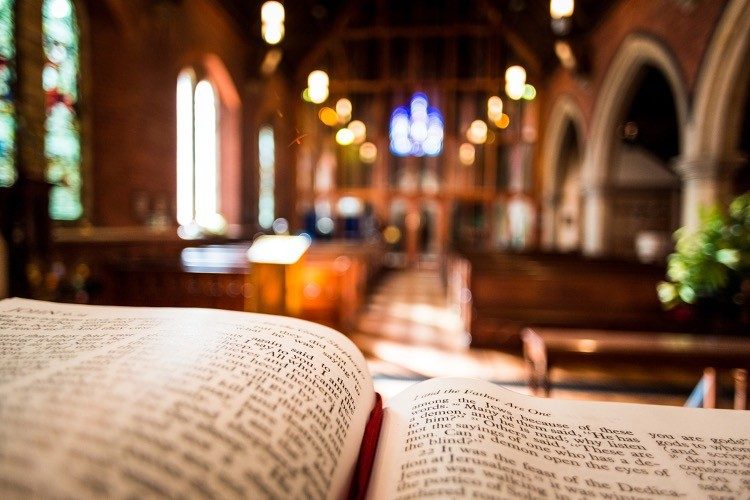
The Church of England’s descent into “wokeness” is about to take another downward step. This spring, the church’s Liturgical Commission will explore using so-called gender neutral terms when discussing the Creator of the Universe.
The Church of England has recently announced that, while they will not “marry” homosexuals, they will offer blessings for such unions. In addition, Archbishop of Canterbury Stephen Cottrell recently announced that homosexual behavior is not a sin so long as it’s within the confines of a “stable, loving, committed” relationship.
The proposed project appears to be a reaction to criticism by the current vicar of Ilminster and Whitelackington in South Somerset, Reverend Joanna Stobart, who recently stated that she wished the church would use “more inclusive language” and refer to God in a “non-gendered way.”
“Please could the Liturgical Commission provide an update on the steps being taken to develop more inclusive language in our authorized liturgy and to provide more options for those who wish to use authorized liturgy and speak of God in a non-gendered way, particularly in authorized absolutions where many of the prayers offered for use refer to God using male pronouns?” Stobart formally asked church leaders.
The vice chair of the Liturgical Commission, Reverend Dr. Michael Ipgrave, the bishop of Lichfield, announced that the commission has been “exploring the use of gendered language in relation to God for several years.”
“After some dialogue between the two commissions in this area, a new joint project on gendered language will begin this spring. In common with other potential changes to authorized liturgical provision, changing the wording and number of authorized forms of absolution would require a full synodical process for approval,” Ipgrave said.
So, for Anglicans, the phrase, “Our Father, Who art in heaven,” could soon be changed to “our parental unit, Who art in heaven.”
More conservative clergy have objected to considering using non-gendered language in reference to the Almighty.
“The fact that God is called ‘Father’ can’t be substituted by ‘Mother’ without changing meaning, nor can it be gender-neutralized to ‘Parent’ without loss of meaning,” said Reverend Dr. Ian Paul, a minister at St Nic’s, Nottingham.
“Fathers and mothers are not interchangeable but relate to their offspring in different ways,” Paul pointed out.
And Father Marcus Walker, the rector at St. Bartholomew in London, noted, “I just don’t think we should be misgendering God. He’s made clear what his preferred pronouns are — especially in his incarnation — so maybe we should just use them.”
Indeed, for Christians the incarnation of God — Jesus — was a male.
Still, a spokesperson for the church claimed that such a change has been under consideration for quite a while now and that God is neither male nor female.
“This is nothing new. Christians have recognized since ancient times that God is neither male nor female, yet the variety of ways of addressing and describing God found in scripture has not always been reflected in our worship,” the spokesperson told Reuters.
“There has been greater interest in exploring new language since the introduction of our current forms of service in contemporary language more than 20 years ago,” the spokesperson added.
Other Anglican branches have been exploring the idea of “gender neutrality” for God for some time. A spokesman for the Scottish Episcopal Church — an Anglican offshoot — was quoted by the Daily Mail claiming, “The Scottish Episcopal Church has been in a gradual process of change in its liturgies over a number of years, as it moves towards less gender-specific language about both people and God.”
The spokesperson claimed that such undertakings have been in process since 1986.
“To that end, we have theological freedom in regard to how we refer to God. Ministers are free to use the language they wish — God has no gender and many choose to use gender-neutral language for God,” the spokesperson explained.
Archbishop Cottrell appears to agree. In 2018, he stated, “God is not a father in exactly the same way as a human being is a father. God is not male or female. God is not definable.”
Perhaps Cottrell is correct when he says that God is not “definable.” All that we mortals have to undertake that task is His Word. But that Word — the Bible — makes clear, in no uncertain terms, that God is the Father and that His incarnation, Jesus, was most definitely a male.
The Church of England’s attempt to spin this as anything less than a capitulation to so-called woke elements of society is a joke, just as their acquiescence to the LGBT agenda last week was. And should they succeed in “gender-neutralizing” their teachings, it’s likely heresy.





